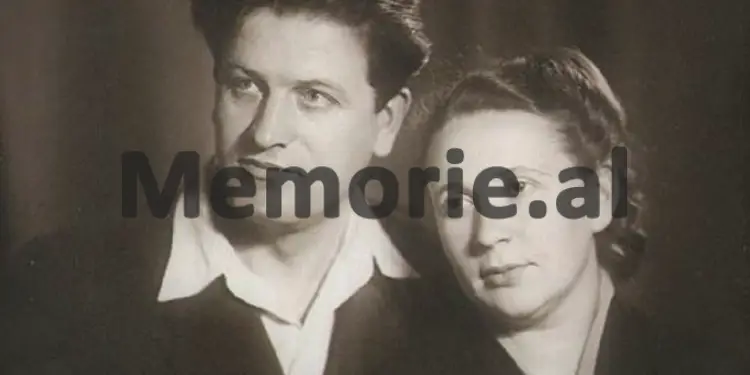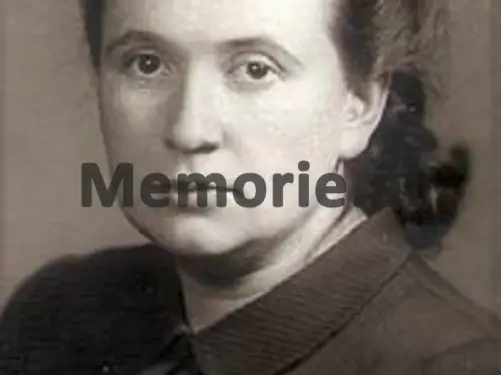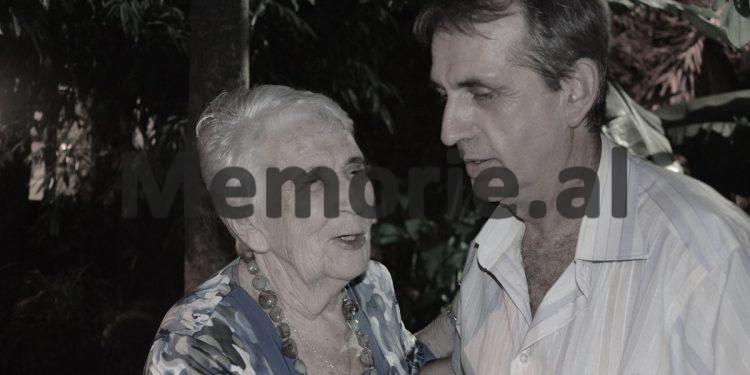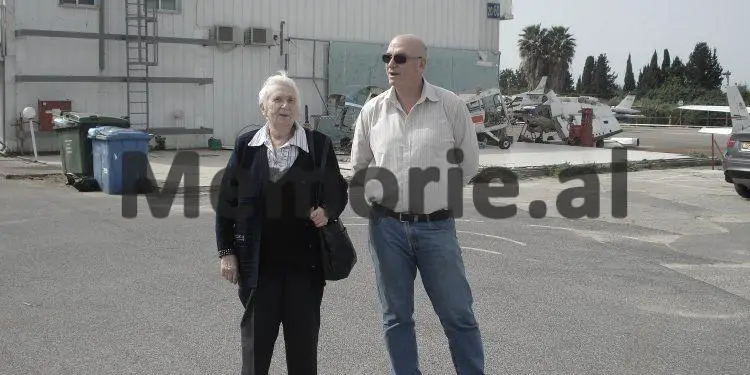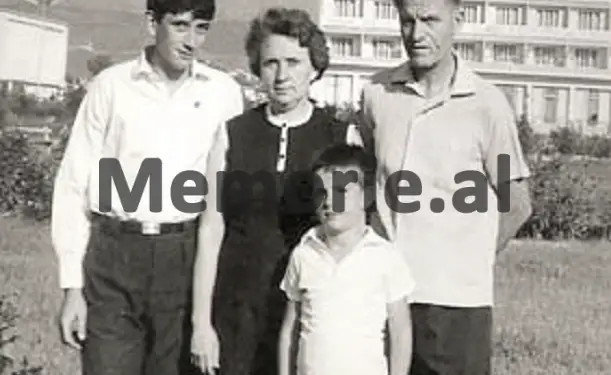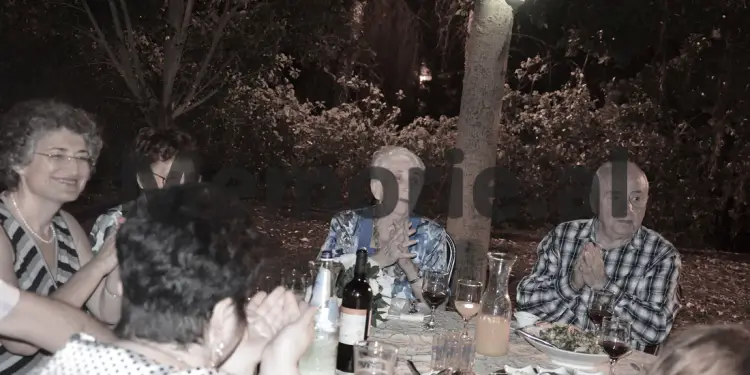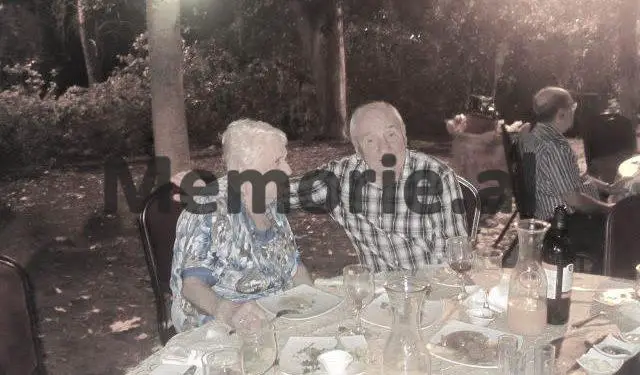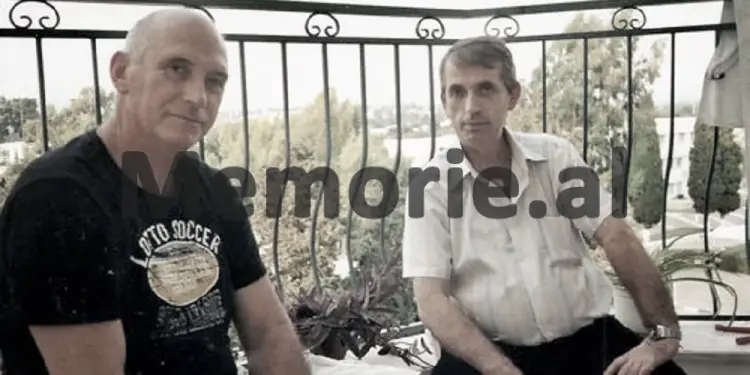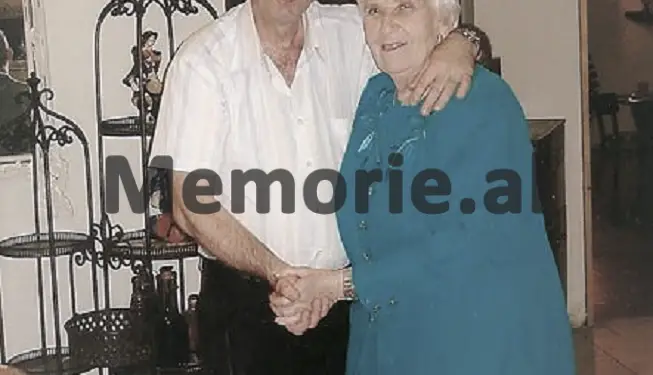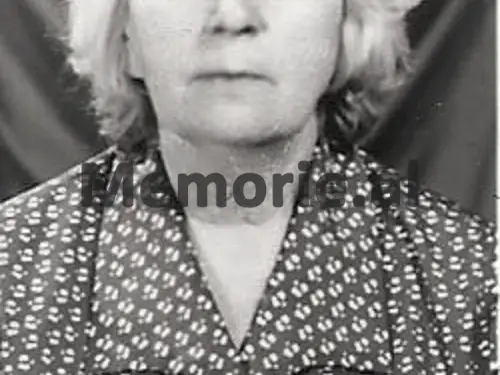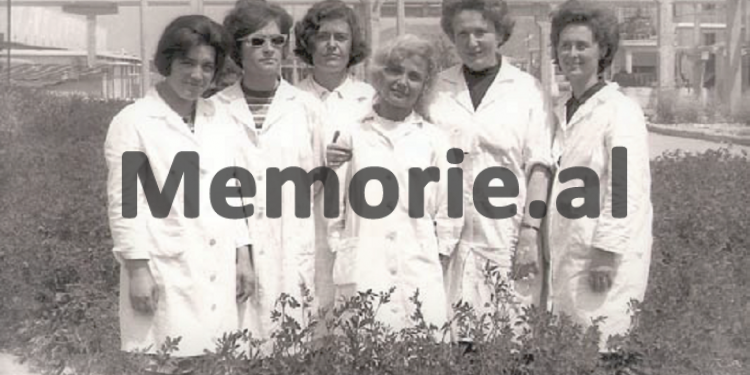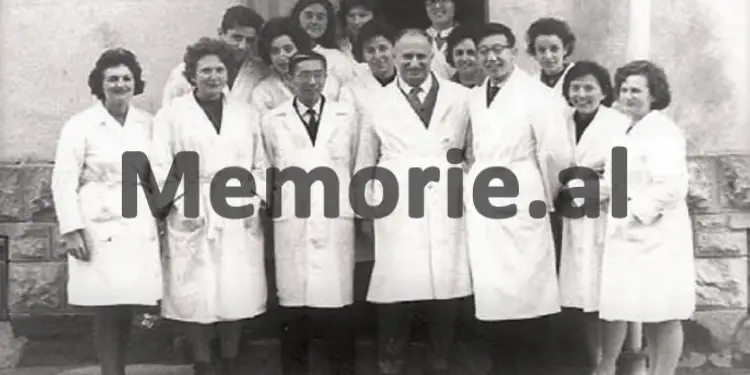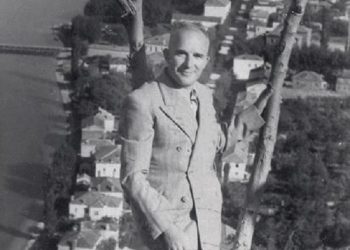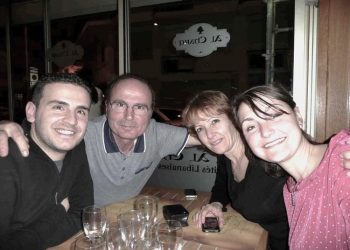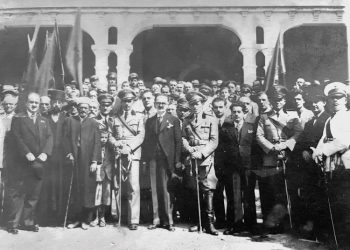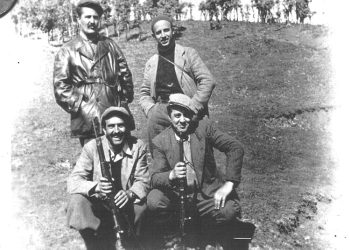By Taisa Batkina Pine
Part eight
Memorie.al/publikon the unknown story of the Russian Taisa Batkina (Pine), originally from Tula, Russia, the third child of a very poor rural family, who was left an orphan at a very young age, after her father lost her life while working in one of the coal galleries on the outskirts of Tula, where he worked as a miner (shortly after escaping arrest, accused of “supporting the enemies of the people”) and she grew up with difficulty great economic, as their city continued to be under the bombardment of German forces, which had reached as far as near Kursk. Taisa graduated from the Faculty of Chemistry, near the ‘Lomonosov’ University of Moscow, where she met and married the Albanian student, Gaqo Pisha, originally from the city of Korça, who at that time was studying at the Faculty of Philosophy in Moscow and both together in 1957, they returned to Albania, together with their newborn son, Sasha, and began life in the city of Tirana, where Taisa was appointed as a professor of Chemistry at the State University of Tirana, while Gaqo, in the chair of Marxism- where they worked until 1976, when the State Security arrested Taisa Batkina on fabricated charges, accusing her of being a “Soviet KGB agent” and sentencing her to 16 years in political prison, which she suffered. in the “Women’s Prison” in the city “Stalin”, from where she was released in 1986, while her husband, Gaqo Pisha, had died in 1983, from a serious illness. The tragic story of Taisa Batkina (Pine), in the inhuman camps and prisons of Enver Hoxha’s communist regime, where she spent a decade of her life, along with many compatriots from the former Soviet Union, or other Eastern European countries, comes through her memories, published in a book entitled “We hoped and survived”, memories which, her son, Aleksandër Pisha, kindly offered her for publication, in Memorie.al
We hoped and survived
I dedicate it to the bright memory of my husband, GAQO PISHA
This is a book of memories. In it I want to tell about my life and that of my friends, Soviet women, who tried prison for several years just because they got the courage and got married and linked their fate with that of Albanian students. The prison was part of the great GULAG in the small Balkan country, Albania, where for many years the bloody communist regime of Enver Hoxha ruled, who was a loyal student of Stalin and a follower of his cause.
Through this book I would like everyone to learn about the inhuman trials we experienced and the horrible years we spent in Albanian prisons, just because we… fell in love! And let no one ever forgets what totalitarianism, despotism is and what the consequences of this system are.
Continued from the previous issue
But all this happened then, later, and now we were waiting to be sent to camp. We spent a full 8 and half years there. Now I sit and remember the horrible hon, from which we were able to climb. I remember them all, I cannot forget them. We were soon sent to camp. I will tell you about life there in the rest.
Part Two: Camp
(Camp work)
Many years have passed, since that difficult time, when we were put in prison and many things have been forgotten, but it is enough to create a similar situation and the images come to my eyes…! In front of our house, where I live today, in Israel, on a hot July day, two young boys were opening a canal, while in front of my eyes I have the hot Albanian summer and we, some women, not younger, who s ‘We were never engaged in manual labor, we worked in the fields, we dug ditches, we harvested wheat, we threshed, we planted, and we harvested potatoes. And all this after a few kilometers under the supervision of the guards, from the camp to the workplace. Vola and Inga, me, were taken to the camp after a long imprisonment, heavy investigation and trial… weak, overworked… and after a week they took us to the field, to work. As we were being taken out of the prison building, Vola stumbled, fell and sprained his leg. Although he walked with great difficulty, he was sent to work with others. Under current law, foreigners serving sentences in Albanian prisons were not required to work in camps. But our position was not clear. During the investigation they could not determine who we were. On the one hand we were Soviet citizens; on the other hand we were forced to obtain Albanian citizenship. I wrote above how long the efforts to resolve this issue before the trial lasted. There, the issue of the work of the article in the indictment was raised. And in the camp, there was another problem. If they called us foreigners, they had to give us special food and we would not work. They finally made the “decision of Solomon”: not to give us special food and not to take us out to work in the field. However, just a few months before they brought us to the camp, our two friends begged the camp director to give them a job. They sought it because they could not hold it, no one helped them, and they were hungry. Those who worked had better food, while those who did not work and did not receive help from relatives soon became dystrophic. So at camp, four of my friends were working in the field, and we joined them.
I remember the first day of work. At 7 o’clock in the morning we marched briskly in the cold air, in a row, without tools. That day we had to carry sacks of corn. We worked, we did not stop, we did not want to be left behind by others, and we wanted to show that we are not afraid of difficulties. Now it makes me laugh: why and to whom should we try something? But then this seemed important to us. We returned to camp at 4 p.m.; it was the end of August, heat, in the sun the temperature reached 40-45 degrees. We could not walk due to fatigue. Until the camp we were helped by young peasant girls, strong girls. Luckily for us, the first day of work shot Saturday. Sunday was a holiday. We rested and recovered a little. On the field again on Monday. It was very difficult. The first two months we were lucky: we prayed to the director of the camp and he assigned us to the part-time brigade, because in the evening we taught in the courses of agricultural workers. We successfully completed this course and our diplomas of Moscow universities and institutes; we added the diploma of agricultural worker, 2nd category. Then në back on the field, with a full day of work. We learned hand in hand. We tried to work hard to avoid the screams of the guards and guards. We had a hard time getting up in the morning; our whole body ached after work the day before. In the winter we had to get up from the warm bed at night, straight into the cold of the field. The camp building was like a concrete crate and was never heated. In the room we slept so tightly that we had to get up one by one, one by one, fixing the bunk beds; between the two beds, only one man could pass. After bathing quickly, we would sip our thin morning soup and take what we had prepared for dinner in the field, run outside, to the square in front of the door, where the brigades lined up. Appeal, count and we left the gate.
The brigades were mixed; Ordinary prisoners also worked with us. At first little girls convicted of theft, immorality, or vicious vices fell on our necks because we were called… enemies; and they believed him. Upon leaving the gate, we ran to the hut where we kept our tools. We worked with teams (in our team were only Russians). At the end of the shift we tied together the blades, pickaxes, shovels, and hoe. We hand-picked the tools for ourselves, got used to them and saved them. We had to get the tools on time, otherwise they might steal them. There was often a quarrel over this. One day, Yllka, a young girl, old in the camp, with a long sentence and authority, grabbed our best shovel and wanted to snatch it from my hands, but five other pairs of hands, the hands of my friends, grabbed the shovel. Yllka had no choice but to leave with her tail in the saddle. We all told you that we were a compact team; we tried to help each other as much as we could, to support each other. I remember with gratitude the brigadiers from the sector of ordinary prisoners; among them there were quite a few good women, who helped us a lot in the field. The place where the camp was located was hilly; almost all our work was on the slopes of the hills. We built terraces, cleared stone fields, dug ditches, and did other manual work. It was difficult to climb the hills with a shovel or pickaxe on my shoulder, with a food bag on my belt. The distance to the place of work was 5-7 kilometers. Working near the camp could be called a lucky exception. In the summer it was so hot that he fainted. In winter… rain, cold, impassable mud…! And where can you count them all?
But some days are etched in my memory because they were particularly difficult. We were working on two neighboring plowed hills. We would crush the cracks left by the tractor. At the top of one of the hills was a tent; was the center of the farm brigade, in the fields of which we also worked. It was raining and the ground was like clay. In the morning the brigadiers divided the work and all were scattered through the hills. Suddenly a torrential rain started. After the guards whistled, we all had to gather in the center of the brigade. Stumbling with difficulty through the mud, we fell, got up again, with pickaxes on our shoulders, descended the high hill, and climbed to the top of the other. The thunderstorm had not ceased. We stayed under a shelter. After ten minutes the rain stopped. We heard another whistle whistle. And we mixed the mud with our feet again; we started climbing the next hill to the workplace. But before the work started well, it rained again, another whistle em I went down again and climbed the next hill. Once under the tent, the rain stopped… This work was not over… was repeated five or six times that damn day. Ordinary people, not wanting to know, shouted and asked the guards to take them to the camp. They had this right in rainy weather. But our chief of guards, not a bad man, but very timid, did not dare to take responsibility, and we kept going down and up the hills. The climate in Albania is subtropical, the winter is rainy. It happened that he caught us in the field crying so much that you could not see either the neighbor on the side or the guards. Due to the sound of rain, the whistles of the guards could not be heard. We stood in the rain, or walked casually. The brigadiers, the guards, the guards ran on all sides, gathering the brigades. There were also frosty days. In Albania during the winter it happens to have 2-3 weeks with sub-zero temperatures, often blowing strong wind and very cold.
In such weather it was very difficult to work on the top of the hill, in the face of strong winds, as hard as you could stand, or to take the shovel out of your hands. You cannot protect yourself from the cold and such wind. We had nowhere to warm ourselves, to dry our clothes; we were not allowed to light fires in the field. Even from the rain we had no way to protect ourselves. With much prayer, those on the farm gave us some military rubber raincoats, but they were so heavy that we could barely walk with them on our arms, not to mention then to carry pickaxes and shovels and work. We wondered where to find pieces of plastic and sew capes with them. And the lucky case helped us. They do not say in vain, whoever seeks, finds. We worked near the greenhouses, which were covered with plastic. Suddenly we saw a pretty big plastic bag that no one needed. It had to be taken. But how do we keep it, to take it to camp? There we were not allowed to enter anything without permission. It was a pretty big package, we could not hide it. We decided to ask permission. That day the guard was Zana, she was not a kind-hearted woman, but not very wicked. I presented to him, as best I could, our difficult position and begged him to let us take the plastic. The fairy regretted giving us permission. We put the plastic in a big bag, which Vola and I had sewn from old rags and carried in it wood, shrapnel, roots, which we collected in the field. I threw the bag in my arms and carried it with difficulty to the camp. With that plastic we made four capes, which for a long time protected us from the rain.
Another working day
All the brigades worked together, we dug a ditch or more precisely, a canal, 2 meters deep and very wide at the top. At first the work was not very difficult, but when the canal deepened, it was barely working. Shovel clay had to be thrown up. They taught us how to hold the shovel, to lean against the canal wall. The work had to be done in a hurry, and we had no more power. All the brigades were lined up on time; the guards stood on the edge of the canal and shouted at us. Suddenly we heard someone jump from behind in our part of the canal. We turned our heads. There were two villagers from our corps, Mailja and Sulbia. They were powerful, accustomed to such work. Very soon they helped us to throw even the last mud shovels. How grateful we were! And this was not the only case. They often helped us, taught us how to work, and gave us courage. Now I remember them with warmth and gratitude. When we went to work, the road often fell near a round pit 60-70 meters in diameter and 100 meters deep, or more. The locals call it the “Devil’s Pit” (it was formed by karstic collapses, which were not uncommon in these parts). The sides of the pit were very steep. One day they took us there and ordered us to go downstairs. We had to make terraces on its shrubby sides, where there was nowhere to rest our feet. We clung to the bushes, with great difficulty opened a ladder, where we could stand and start work. The work was risky, from one moment to the next one could break his leg and fly down.
One day one of the brigades was a little late on the upper terrace, while the other started work below. A stone, which rolled from above, seriously injured a working woman downstairs. A desperate cry was heard and panic set in. Meanwhile, among the prisoners there were also patients with epilepsy. Crises began for them, some wanted to be rejected; barely holding them to the edge of the hon. He ordered us all to climb up. The sick were pulled out of the pit in their hands. Those who could not walk got on the carts that brought us water in the field, and the brigades hurried to the camp. That day there was no question of continuing the work. We worked many days in that pit, made terraces, opened places to plant fruit trees. But it turned out that no one needed it (like many of what was happening in Socialist Albania); not all factors were taken into account. The work was done; new land was acquired, notified to the party committee and above. But there was no water in the pit, there was no road and after a year we passed near the pit where the seedlings had dried…! They paid us a little to meet the rate, but still, something. Exceeding the rate by 125 percent was rewarded with another 20 points. For every 100 points, deduct one day from the prison term. But for us the realization of the norm was almost utopia. But it also happened… rarely, very rarely, mainly when we were working on planting or plucking potatoes. We worked as a brigade; everyone was doing a certain job. Everything by hand. I was usually brought in manure. Not a very pleasant job. We carried it in wet crates or bags on our backs. Once we were working in a large field, on a hillside. For the whole brigade they had given us a chariot (it was the first time that they helped us with a chariot). Around the cart gathered young girls, trying to find the one who liked the cart best and to fill his mind with manure on her plot.
I happened to be nearby too… old, weak, gray (I was not even 50 then, but I looked like 70). I also begged the low-pitched cart driver to throw some manure on our plot. Suddenly he felt sorry for me, waved at me, and I marched triumphantly in front of the chariot to show him the way to our plot. My friends were immeasurably surprised when I came across a whole cart full of manure. We quickly unloaded the cart; enough manure for our entire plot. That day we achieved the norm, and I won the title of “supplier”. Another time we barely secured seed potatoes. There was little seed, if you do not have a reserve, wait until they bring again, as time passed and the norm was not met. Suddenly, we discovered that two sacks of potatoes had been taken by two girls convicted of theft, working on the adjacent plot. We robbed them of it with great difficulty…! We had to beat them. We worked honestly, we did not cheat, we did not know how to cheat, and we were not taught. We were used to working clean. What we did, we did with good quality. The brigadiers knew this and our quality work had several times got them out of the situation. One day we were working, digging the soil with the waist, to a depth of 40 cm. suddenly on the other side of the field appeared the control commission, the Farm agronomist and other officials. They controlled the quality of the work. The brigadier, Liza, immediately stopped near our parcel and waited for the commission. She was convinced that the depth in us was within the norm and that we would not shame her. The commission approached, measured the depth in some places… everything is fine! The commission left satisfied. Even if they found further irregularities, the first impression helped the brigadier to reach an agreement with the inspectors. But even our brigadier did not remain in debt; in the former case, it helped us earn some money. This to us was of great value; we could buy food at the camp store, mainly sugar, oil, flour. But we also had another obligation, heavy and extremely unpleasant. We worked in the open field or on bare hills and the “toilet” had to be brought with us.
The “toilet” was: 4 long poles, where we tied 4 old blankets. We took these with us from the camp, in turn, two by two. And we had to not only carry them, but also “freeze” them, save them from falling into the “toilet”, and then return them to the camp. We marched in a row and, in one hand we held the toilet paper, in the other the pickaxe or shovel. Hand-in-hand field work became commonplace. We weakened considerably, got terribly tired, barely stumbled up to camp, yet got up every day and went to work in the field. When we returned we had to bring, in addition to the “legs”, also pickaxes, shovels, spades, hoe, but also firewood. It was not about hot water, and we would wash, we would wash some clothes, but we would also cook something. With what they gave us in the canteen, you could not provide the strength to work in the fields. From old overalls we sewed large bags, which we filled with straw, spruce, bush roots. We carried all these on our backs and brought them to the camp. One day, Sulbia, when she saw me loaded with a big bag full of wood, said: he brings a pickaxe or a shovel, but also wood”. I wrote to you above how the villagers from the north helped us. How we were taught to work. For the first time in my life I took the sickle in my hands and started chopping corn. Suddenly Mina shouted: “Nadire, take the drapery, tell me how to work with it, because some leg is waiting for us”. One day when we were sitting down to eat lunch, Nailja saw me chewing dry bread in the field, gave me half an onion and said: “You will get used to it, do not worry, everything will be fine. We too had nothing from the beginning… You will be taught! These words warmed my soul. We worked in a large field, we opened drainage canals. Many parallel channels had to be opened, to put pipes in them, then gravel, etc. We started to open the canals closer to the road. To open the next channel you have to cross the first one with a shovel or pickaxe on the shoulder. This was difficult for us because the width of the canal was over 1 meter. But Hasimja came to our aid. She stood next to each canal and helped us cross to the other side. (Hasim was a peasant, a young, powerful, very beautiful girl; she was imprisoned because she wanted to flee abroad with her boyfriend). And how can I forget that girl?! /Memorie.al
The next issue follows




